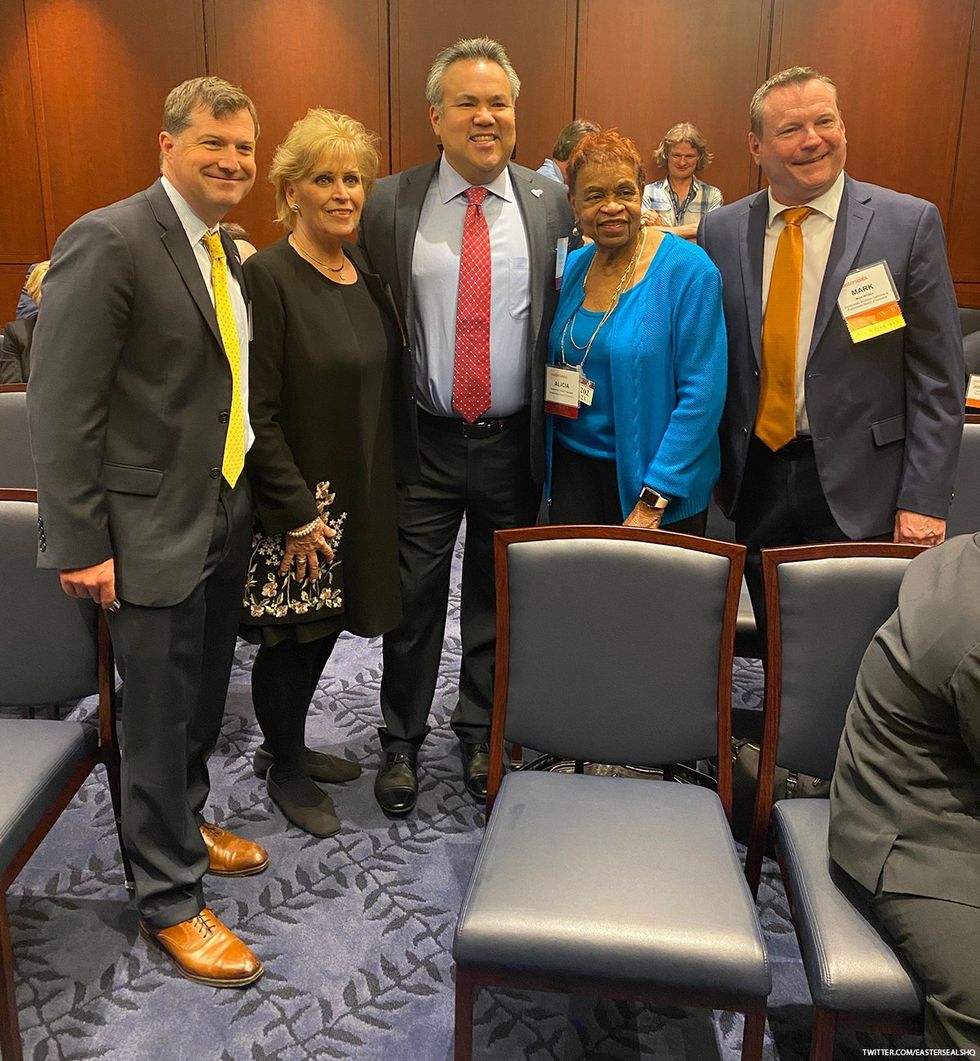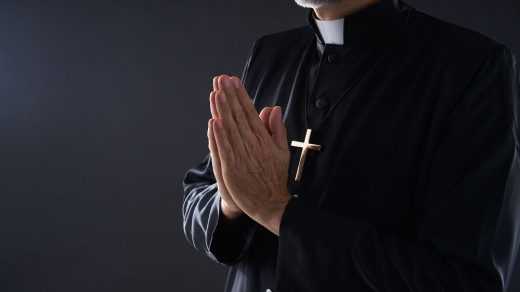Easterseals Highlights Alarming Accessibility Gaps for Disabled Americans
Author: Christopher Wiggins
Easterseals, a non-profit organization dedicated to advancing equity and access for people with disabilities, released a status report this week about the challenges they face every day. Representatives from affiliates across the country came together in Washington, D.C., to promote awareness of the lack of accessibility in American life across the government and business by speaking with Members of Congress.
The Americans with Disabilities Act has been in effect for over 30 years, but Easterseals warns it needs a refresh in its report “The State of Disability Equity and Access.”
Changing the laws and engaging in civic engagement is essential to building on the foundation for meeting the needs of disabled people, the organization concludes in the report.
Easterseals advocates conveyed that message to legislators on Capitol Hill as part of a day of action that included a congressional briefing Wednesday that called attention to the challenges facing the 61 million Americans living with apparent and non-apparent disabilities.
Democratic Sen. Chris Van Hollen of Maryland and Michigan Democrat Rep. Debbie Dingle, co-chair of the Bipartisan Disability Caucus, both were scheduled to attend and speak, although Dingle could not participate due to several committee votes.
Van Hollen thanked the representatives from Easterseals for their work and committed to continue advocating for people with disabilities.

The report released by the group states, “It is now time to ensure people with disabilities, older adults, and veterans have every opportunity to contribute to their communities and build lives of their choosing.”
It notes that “Disability impacts us all.”
In the U.S., one in four people identify as having a disability, making this community the largest, most diverse, and most intersectional minority group in the country.
“It is also the only minority group that anyone can ‘join’ at any point in their lives – through birth, injury, accident, disease or simply through aging,” the report stresses.
People often take for granted the ease with which they can navigate life without considering the often insurmountable challenges disabled people face, yet almost everyone will become disabled or care for someone disabled at some point.
There are four areas where Easterseals reports public buy-in and significant investment are necessary to improve access for people with disabilities. Those with disabilities often face barriers to education, health care, transportation, and employment that non-disabled people don’t face.

The report emphasizes the importance of reliable, convenient, and frequent transportation in daily life. Making everyday life more accessible is, therefore, both right and wise economically.
Easterseals CEO and President Kendra Davenport shared with The Advocate that it’s her goal to convince legislators and Fortune 500 business leaders that investments in transportation are innovative strategies for business success. She notes that much like the LGBTQ+ community faces discrimination for who they are, the disabled community, of which many are also LGBTQ+ people, struggles with similar identity-related challenges.
“Americans who live with disabilities don’t want pity and the vast majority of disabled people with whom I speak through my work tell me they wouldn’t change who they are or give up their disability because it is a part of what makes them who they are,” Davenport says. “But what they demand is to be seen and afforded the ability to live full, happy lives like everyone else.
From curb cuts in sidewalks that allow a wheelchair to pass to retooling airplane bathrooms to make them accessible — as it stands, they are not required to be ADA-compliant on single-aisle aircraft — to the ability for passengers who need to remain in their wheelchairs or who choose to stay in them for comfort and peace of mind, to be secured into place on planes, these improvements would benefit everyone.
“The disabled community has around $20 billion in discretionary income. So why isn’t anybody focusing on that?” Davenport says. “It’s crazy. It’s a vulnerability in the corporate sector. And whoever starts getting it right will realize terrific gains because the disabled community will get behind them.”
She adds, “There are companies who have flipped that switch, but there are a million more that could do a better job.”
Easterseals’ vision is to become a household name for supporting disability awareness and activism just as Susan G. Komen is for breast cancer awareness, Davenport says.
“We didn’t talk about breast health 20 years ago,” Davenport tells The Advocate. “Men didn’t wear pink as they do now — we have NFL teams wearing pink cleats to show support for breast cancer, for example.”
According to her, most people know the importance of mammograms because of Susan G. Komen. She hopes that people become familiar with Easterseals and recognize the importance of disability advocacy and access.
“I want us to make the same strides so that the most rudimentary information about disability becomes ubiquitous and more people understand it,” Davenport adds. “We need to make it so overt and in people’s faces, and then we need to make it okay — in the same way they made it for men to champion a women’s disease in an intimate part of their body — to acknowledge disabilities in America.”
Original Article on The Advocate
Author: Christopher Wiggins




